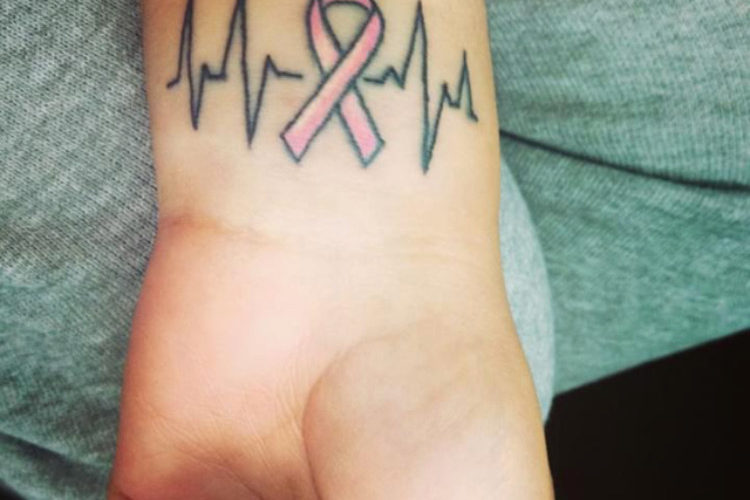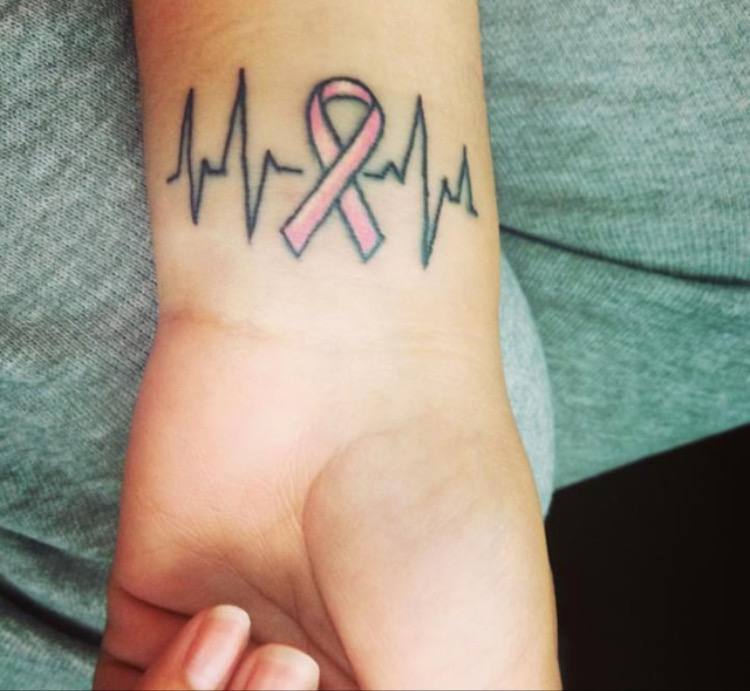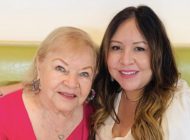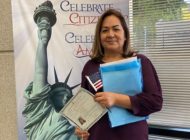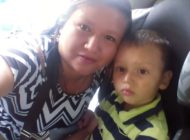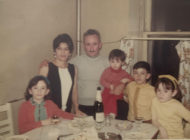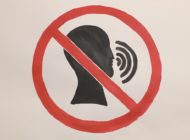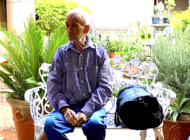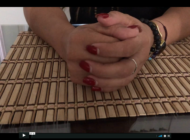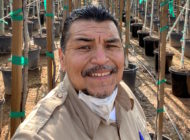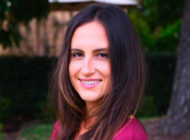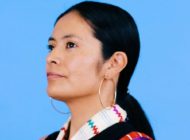To Maria, the expensive medical payments of her chemotherapy and treatments is what at first worried her. She had 8 chemotherapies, 70 radiations, checkups that cost about $800 each, and an operation to remove the breast with cancer. A total of about $300,000.
By ELAINA TOVAR
EL NUEVO SOL
She was about to take a bath at her home in Milwaukee when she raised her hands to her head to see her breasts. She felt that her left breast was being absorbed. She saw her decomposed breast and knew it was not normal. That was when she got scared.
This was the reality Maria from Jalisco, Mexico, faced at the age of 45. For the purpose of protecting her immigrant status, Maria will be used as her name to protect her identity. Even before this happened, she knew something was wrong with her body when she breastfed her youngest of her three children.
“He would burst my nipples a lot,” Maria said. “I told a doctor, my breasts are bursting, I think I am giving more blood than milk.”
The doctor advised her to apply some ointments and medicine and also told her to stop breastfeeding her son. However, as time passed she noticed another problem. Large balls were appearing as lumps in her left breast, in which the doctor would tell her it was just accumulated milk. When her youngest son was nine years old, she once again returned to the doctor because she felt a very large ball that was giving her pain. Since no one from her family had cancer, the doctor told her not to worry.
“And I, like every woman who likes to hear that you’re fine, you have nothing, I was glad,” Maria said.
As three months passed, another visit to her primary doctor and one look at her breast, she immediately knew it was not a good thing.
“Then I held on crying because I felt so bad, I knew it wasn’t right,” Maria said.
She did a mammogram first, but soon the doctor told her she had to come again the next day for a biopsy because something was not right.
“When they did the biopsy, it was so painful that I broke two needles because the ball I had was already a stone,” Maria said.
Within two days she came to find out that she was in stage two of breast cancer. When Maria first got notified the first thing that crossed her mind was death. She feared that she would leave her youngest son and not be able to see him grow into an adult.
In 2018, more than four in 10 which is about 45 percent of undocumented immigrants in the United States, were uninsured for healthcare. This is much more compared to less than one in 10 for citizens (about nine percent). Maria is one of the many who falls under the 45 percent of undocumented immigrants who is not healthcare insured.
Through experiencing this, she was getting the support of her partner. For some time, he helped her pay her bills. For two years she had stopped working her regular job at a restaurant and he was the one helping her pay for all her expenses.
To Maria, the expensive medical payments of her chemotherapy and treatments is what at first worried her. She had 8 chemotherapies, 70 radiations, checkups that cost about $800 each, and an operation to remove the breast with cancer. A total of about $300,000.
However, she didn’t have to pay one dollar of her medical expenses because she received help from a social worker from the hospital. Maria took all her annual income information and all the expenses she’s made in the past to her social worker. Due to her falling under the low income category, she 100 percent qualified for paying nothing on her medical expenses.
“That social worker said to me, ‘you are not going to worry about anything. I am going to help you as much as I can and you are not going to pay anything,’” she said.
A Kaiser Family Foundation (KFF) analysis of a 2018 American Community Survey shows the eligibility coverage in the Affordable Care Act (ACA) among those who are nonelderly and uninsured. The analysis indicates that 50 percent of undocumented immigrants are low income.While citizens who are low income, account for a total of 30 percent. Thus, if undocumented immigrants fall into the category of being low income, then this makes them more likely not be able to pay for costly medical expenses.
In another KFF analysis based on 2019 Medicaid eligibility levels, shows that undocumented immigrants are 100 percent ineligible for ACA coverage. Since they’re left with no coverage, their only option is to seek help with safety net clinics, but often end up without the proper care.
Lydia Ramirez, a director of an organization called Daughters of Charity has been helping immigrants sign up for government healthcare benefits. For more than 30 years, her mission is to empower people to a better life. Ramirez says promoting preventive health can reduce medical costs.
“Promote that people go at least once a year to get checked. People would be more aware of their current state of health and could tackle some of the conditions they have,” said Ramirez.
Ramirez says undocumented people also seem to be afraid to sign up to government programs because they don’t want the government to know of their undocumented status. They tend to stay away from government sponsors because they are scared someone might come knocking at their door one day.
Without a doubt, fighting breast cancer has been one of her most challenging parts of her life. She knew she couldn’t breast cancer take over her life. Her family was her motivation to keep fighting, but also her mother that she hasn’t seen for 24 years back in Mexico.
“I ask God so much to get me that miracle that as soon as I get my papers the first thing I would do would be to catch a flight and go see my mom,” said Maria.
At this moment, Maria already has permission to be in the United States. The one thing she doesn’t have is permission to work. Later this year, she hopes to apply for being a resident.
Maria is grateful to God and the United States in that it helped her financially, her health, and the well being of her family.
“When I turn 50, I don’t say I’m 50, I say I’m going to be 6 years old. I always count from when cancer was detected until now because I felt I was born again,” she said. “A second chance that God gave me.”
Tags: breast cancer health immigration Jalisco Latina Milwaukee undocumented







